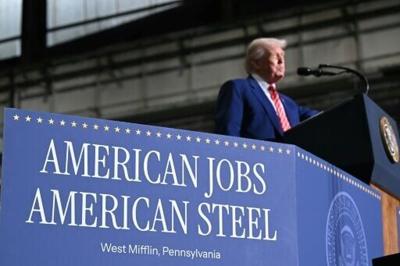
THREAD: global elections will voter choices...
LifeLine™ Media threads use our sophisticated algorithms to construct a thread around any topic you want, providing you with a detailed timeline, analysis, and related articles.
News Timeline


TRUMP’S 50% Steel Tarif Shock: America’s Powerful Comeback Rattles Global Markets
— President Trump has slapped a 50% tariff on imported steel and aluminum. He made the announcement at U.S. Steel’s Irvin Works in Pennsylvania, sending a clear message: America First is back in action.
Markets around the world took a hit after the news broke. Experts say prices could jump for companies that depend on foreign steel, which may lead to higher costs for everyday Americans.
The White House is getting ready for court fights over these tariffs. Some judges have questioned if the president has this much power over trade, making things even more uncertain.
At the same time, Japan is tightening its rules on cryptocurrency. Closer to home, federal agents stopped a migrant smuggling ring at our southern border — reminding us of the tough economic and security battles America still faces.

— Crypto Market Shock: CryptoNet, one of the largest exchanges, has frozen all withdrawals amid fears of hacking or insolvency. The move has sparked global panic and raised concerns over liquidity and security.

TRUMP’S Bold Steel Move: 50% US Steel Tarif Shocks Global Rivals
— President Trump has announced he will double tariffs on imported steel and aluminum, raising them to 50%. He made this announcement while visiting U.S. Steel’s Irvin Works in Pennsylvania.
Trump says these higher tariffs will protect American jobs and help local factories compete with foreign companies. Supporters believe this is the right step to fight back against unfair trade from other countries.
Some critics claim the new tariffs could raise costs for U.S. manufacturers and spark payback from overseas. Still, many see Trump’s decision as a strong message that America will not be pushed around on trade.
This move comes at a key moment for American industry, as leaders look for ways to keep jobs at home and strengthen the nation’s economy.
CRYPTOCURRENCY PANIC: Shocking Exchange Freeze Triggers Global Fear
— CryptoNet, one of the biggest cryptocurrency exchanges, has suddenly stopped all withdrawals. Thousands of users can’t get to their money. The company blames “technical failures” and “massive withdrawals,” but some experts think the real problem could be hacking or even insolvency.
The news sent panic through the crypto world. Bitcoin dropped more than 15% in just a few hours. Other coins like Ethereum and Ripple also took big hits as investors rushed to sell.
Regulators from the US, Europe, and Asia are now paying close attention. Some have already suggested that they might investigate CryptoNet’s business practices and look for ways to tighten rules on digital currencies.
This crisis is making people question if cryptocurrencies are really safe as more folks use them every day. Investors fear that if trust keeps dropping, problems could spread into regular banks and markets too.

TRUMP’S Bold Auto Tarifs Spark Fury And Hope In Global CAR Market
— President Trump has announced a 25% tariff on imported cars and parts, starting in April. He says this move will boost American car makers and bring jobs back to the U.S.
Some experts warn these tariffs could raise prices for buyers and shake up car production. The U.S. brought in about eight million foreign cars last year, making up half of all sales.
Financial analysts say the tariffs might lower stock values by 5%. They also worry about possible inflation, job losses, and even a recession if trade fights continue.
India is asking for an exemption to protect its $66 billion export business with America. The Trump team is using these tariffs as leverage while working on new trade deals that could change the global market and America’s future economy.
CHINA CHEMICAL Blast Shocks World: Fears Rise Over Global Unrest
— A huge explosion at a chemical plant in China killed at least five people. Videos online show the disaster’s scale, but Chinese officials have not said where it happened or what caused it. Many are now questioning China’s safety standards and how they handle emergencies.
At the same time, Sudan faces a deadly cholera outbreak that could make its crisis even worse. In Gaza, crowds rushed a US-backed aid site as food and supplies run low.
Back in America, the Trump administration plans to pull $100 million from Harvard University. This move has sparked debate about whether elite schools should get so much federal money.
Meanwhile, Russian troops are moving forward in northeast Ukraine to create a buffer zone — another sign of growing global tension. From Canada’s political drama to protests in Zimbabwe and violence in Jerusalem, unrest is spreading across the world.
NO MAJOR World News Shocks: Calm Before the Next Global Storm
— Major news outlets report no shocking world events outside the UK and US as of May 22, 2025. The global timeline is steady, with only previously covered incidents making headlines.
Recent stories highlight big jail breaks, court rulings in Britain, and ongoing immigration challenges. In Southeast Asia, millions are still struggling after deadly floods and landslides forced them from their homes.
The biggest diplomatic twist came when former President Donald Trump announced a surprise ceasefire between India and Pakistan — brokered with help from Russian President Vladimir Putin. This move caught many off guard and may shape future talks in the region.
For now, there are no new global crises or major breakthroughs to report. Conservative readers can expect more focus on local issues in coming days as the world waits for what happens next.

— No new major financial stories emerge. Monitoring will continue for any updates.
NO NEW World News Shocks: Global Headlines Fall Silent Outside UK and US
— As of May 22, 2025, there are no new breaking news stories from outside the UK and US. The world news cycle is quiet for now.
Ongoing events like Russian attacks in Ukraine and Southeast Asia’s humanitarian problems are still being reported. However, nothing new or urgent has come up at this time.
This rare pause in international headlines shows a moment of calm outside the usual trouble spots. For now, people are watching the same conflicts and crises already known to the public.
“GLOBAL DIGITAL Currency Push Sparks Chilling Freedom Fears”
— Governments worldwide are rushing to launch CENTRAL BANK DIGITAL CURRENCIES, or CBDCs. China, the European Union, and the United States are leading this charge. They say these digital dollars will modernize our money and make payments easier. But many see a different story — one where governments tighten their grip on your wallet.
Privacy advocates warn that CBDCs could let officials track every purchase you make. Critics worry this power could lead to censorship or even punish people for their political beliefs.
Experts say CBDCs will soon change how we bank, shop, and send money across borders. Supporters claim it’s progress — but at what cost?
This push for digital cash raises big questions about freedom and privacy in a world where every dollar you spend could be watched by someone in power.
— US Eases Sanctions on Syria. The Biden administration grants limited waivers to promote peace and stability, signaling a shift in Middle East policy. The move sparks mixed reactions and may impact regional alliances and global markets.
AFRICAN PORT Chaos: Global Supply Chains Face Nightmare Shutdown
— A massive strike has shut down Durban’s main port in South Africa, leaving hundreds of ships stuck and stopping the flow of goods. Thousands of dockworkers walked off the job this morning to protest automation plans and looming job cuts announced by port leaders.
The shutdown is already causing a huge backup of shipping containers. Experts warn that electronics, car parts, and retail goods could soon be in short supply if things don’t get fixed fast. Prices may rise as products become harder to find.
Economists say a long strike could disrupt global supply chains for weeks or even months. Talks between port officials and union bosses are happening now, but there’s no agreement yet.
Tensions are rising as government leaders slam the strike while unions accuse them of moving too quickly toward replacing workers with machines. The world is watching closely as negotiations drag on with no clear end in sight.
SAUDI OIL Shock: Painful BAN Sparks Global Price Surge
— Saudi Arabia just announced it will stop all oil exports for at least three months starting June 1, 2025. The kingdom says it needs to refill reserves and protect its national security. Oil prices shot up over 12% in a single day after the news broke.
Big countries like the United States, China, and India are already feeling the pinch. Some experts warn that if this ban lasts through summer, we could see energy shortages and even higher prices at the pump. Inflation may rise as a result, making life harder for working families.
Tensions are heating up in the Middle East as other nations talk about how to respond. Some market watchers think this is just a short-term move by Saudi Arabia. Others worry it could mean bigger changes to how they handle oil exports in the future.
Americans should get ready for more pain at gas stations and possible supply problems here at home. So far, President Biden’s White House has stayed silent on what steps they’ll take next.

GLOBAL MARKET Panic: US Sanctions on China Trigger Shockwaves
— Stock markets around the world took a nosedive after the US slapped new sanctions on China’s tech industry. The Biden administration claims China has been stealing American ideas and playing unfair in trade.
Some experts warn these tough measures could start a bigger trade war, hurting supply chains and slowing down the world economy. Asian markets, especially in Japan and South Korea, dropped fast as worries spread about what comes next.
Investors are being told to pay close attention as leaders rush to emergency meetings to figure out their next move. This story is still unfolding and could hit businesses everywhere hard.

— Mexican Navy Ship Collides with Brooklyn Bridge The incident causes deaths, structural damage, and raises safety concerns amid global trade tensions

— Japan’s FSA to classify crypto assets as financial products The move will impose insider trading restrictions and is set for parliamentary approval by 2026
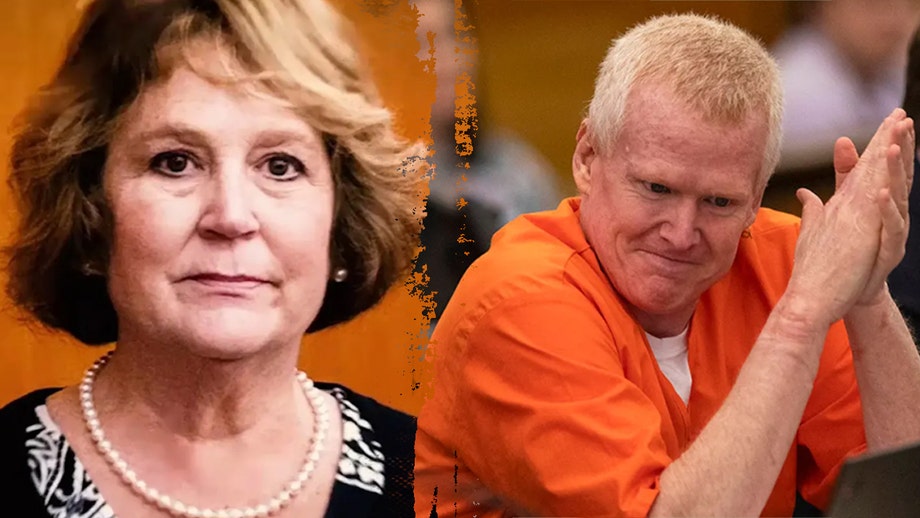
MURDAUGH SHOCK: Court Clerk’S Felony Charges Ignite Fury — But Will It Save HIM?
— Becky Hill, the court clerk from the Alex Murdaugh murder trial, has been hit with felony charges. She’s accused of lying to a Supreme Court justice about sharing sealed evidence and using her job to boost her own book sales. Authorities say she faces perjury, misconduct, and obstruction of justice.
Some people wonder if these charges could help Murdaugh get a new trial. But legal experts say it’s not likely. Former South Carolina Attorney General Charlie Condon told Fox News Digital that Hill’s legal trouble doesn’t support Murdaugh’s case at all.
Earlier, Murdaugh’s lawyers said Hill tried to sway the jury. But police did not charge her with jury tampering this time around.
Murdaugh is still convicted for killing his wife and son in 2021. His lawyers keep fighting for a new trial, but prosecutors insist that nothing Hill did changed the outcome of his case.
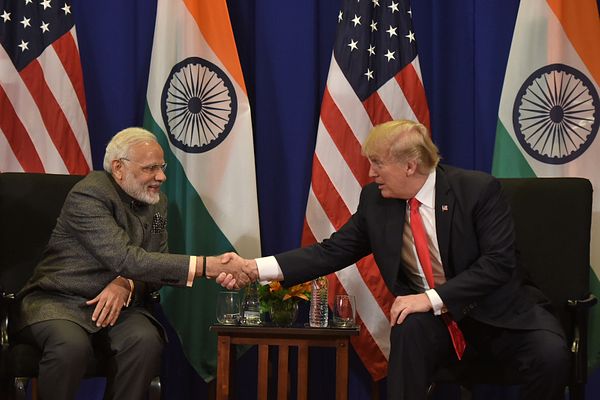
US-INDIA TRADE Deal Shock: Massive Tariff Slash Could Change Everything
— The United States and India are close to a trade deal that could end years of bitter tariff fights. Sources say the agreement would cut India’s average tariffs on American goods from 13 percent down to just 4 percent. Right now, India charges much higher tariffs than the U.S.—17 percent compared to America’s 3.3 percent, according to global data.
India is offering zero import duties on some U.S. products like airplanes, cars, and medical devices. In return, it wants better access for its own exports — such as jewelry and clothing — in American markets. Indian leaders also hope for more chances in high-tech fields like computer chips and medicine.
The Trump administration had raised tariffs on Indian goods because of a $45 billion trade gap favoring India but paused those hikes while talks continued. Both sides are now looking at “zero-for-zero” deals in key areas like steel and medicine, with the U.S. pressing India to fix strict quality rules that have blocked American companies.
Experts say time is running out before temporary tariff breaks expire. If this deal goes through, it could settle old disputes and open major investment doors for both countries — just as they compete with other nations for future U.S. trade deals.
RUSSIA-UKRAINE Peace Talks Shattered: Putin’s Cold Rejection Sparks Global Outrage
— Russia and Ukraine met in Turkey to talk peace, but the meeting lasted less than two hours. The only thing both sides agreed on was a prisoner swap. Hopes for a 30-day ceasefire went nowhere, even after Ukraine’s President Zelenskyy spoke with former President Trump and other allies.
The Kremlin quickly shot down Trump’s plan for a ceasefire. This led many to say Putin has no real interest in ending the war. UK Labour leader Keir Starmer called out Putin for playing “pointless games” instead of working toward peace.
In other news, the International Criminal Court prosecutor who targeted Israel’s prime minister stepped aside after sexual misconduct claims. This move shook up global legal efforts and left many questions unanswered. Israeli leaders also pushed back hard against UN accusations of “genocide” in Gaza as tensions grew.
Trump finished his Middle East trip by making economic deals and warning Iran about its actions. Survivors held by Hamas pleaded with both Netanyahu and Trump after an American hostage was freed. Other headlines included Uruguay’s former president Mujica passing away at 89, Australia seizing $400 million in cocaine, and Poland closing Russia’s Krakow consulate over suspected Kremlin-linked arson.
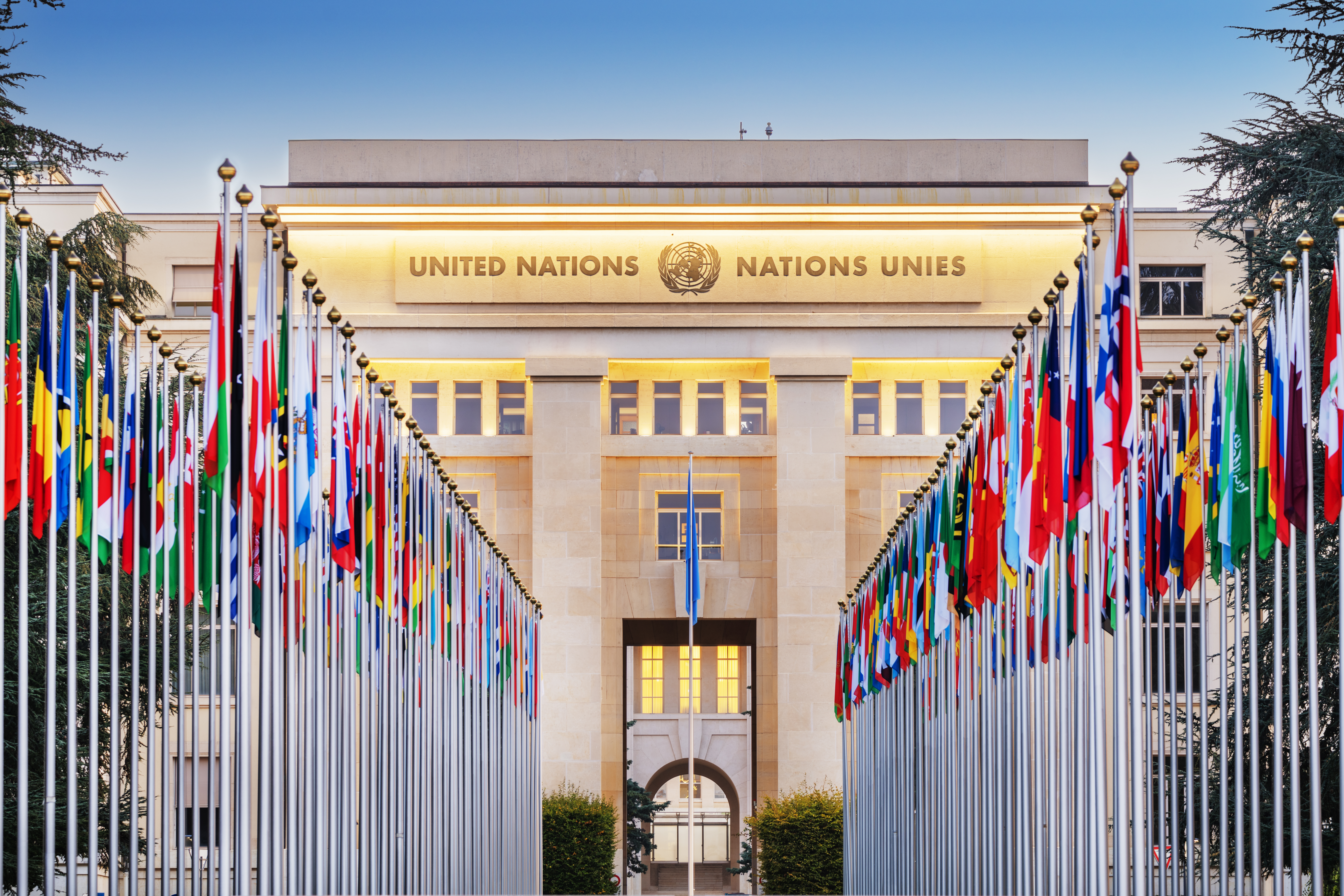
UN BLAMES AMERICA: Gloomy Global Growth Forecast Sparks Outrage
— The United Nations is blaming the U.S. for a slowdown in global growth, pointing to higher American tariffs and trade fights. The U.N. now expects worldwide growth to hit just 2.4% this year and 2.5% in 2025 — both lower than what they predicted before.
Shantanu Mukherjee from the U.N.’s Economic Analysis team says “uncertainty” is everywhere right now. He also blames shaky politics, rising costs, supply chain messes, and financial worries for making things worse.
The slowdown is especially tough on developing countries. Their expected growth rate dropped from 4.6% to 4.1% since January — a huge loss for places already battling poverty.
U.N. experts warn that if these trends continue, more than half of the world’s poorest people could face even harder times ahead.
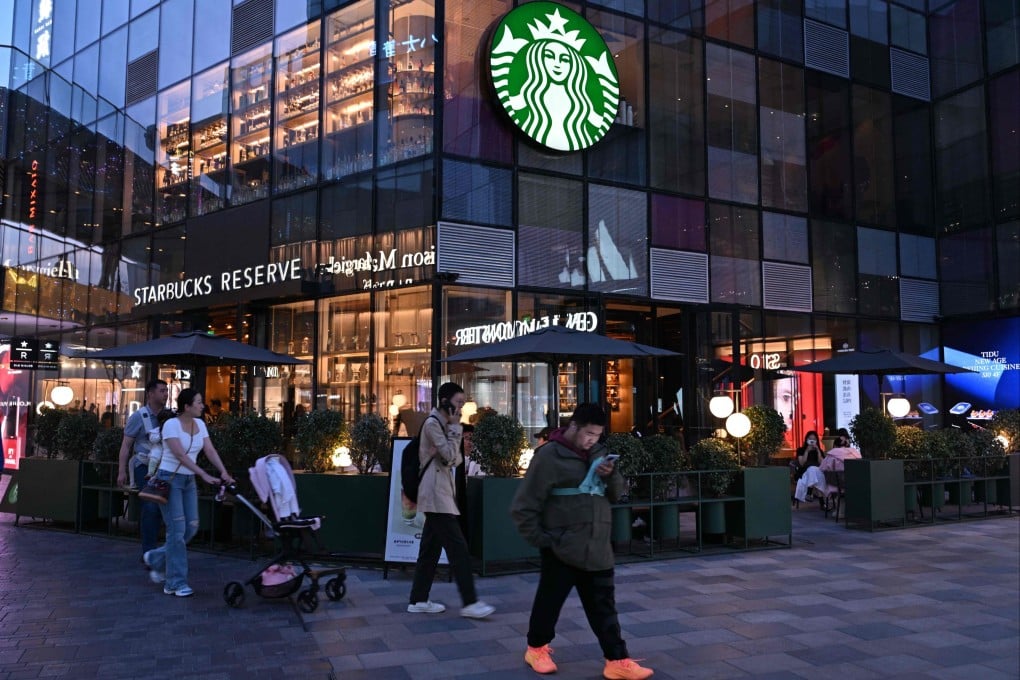
BUSINESS SHOCKER: Chorus, Saks, And Starbucks Unleash Bold Moves On Global Markets
— Chorus is rolling out faster business fibre plans in New Zealand. The company now offers a 1Gbit/s plan with equal upload and download speeds. They also promise quicker service if things go wrong. Experts say if more businesses use the cloud, it could add billions to New Zealand’s economy.
Saks Fifth Avenue is trying something new by selling luxury goods on Amazon’s UK website. With brands like Dolce&Gabbana and Balmain, Saks hopes Amazon will help them reach more shoppers across Europe.
Starbucks may sell part of its China business. The coffee giant has started talking with private equity groups and tech firms as it looks for new ways to grow in China.
These bold moves show how big companies are changing fast to stay ahead in a tough global market. Conservatives know that innovation and competition keep economies strong — these updates are proof of that belief.

WORLD In CHAOS: Border Bloodshed and Outrage Shake Global Stability
— Fresh violence broke out on the INDIA-PAKISTAN border just hours after leaders promised a ceasefire. Both sides blame each other for breaking the truce, leaving families in Kashmir trapped in danger. The U.S. and other countries are asking for calm, but peace looks shaky.
In POLAND, thousands took to the streets to protest illegal immigration before the presidential election. Nationalists led chants of “no to immigration,” blaming Russia and Belarus for sending migrants into Europe. The Law and Justice party’s candidate is gaining support with his strong border stance.
ISRAEL is under fire from aid groups over how it handles humanitarian help in Gaza as conditions get worse for Palestinians. In a bold move, EL SALVADOR has offered to house U.S. prisoners if America pays — raising eyebrows as the U.S. struggles with crowded jails.
Other world news: Ukraine’s President Zelensky called out Putin for direct talks, while Donald Trump pushed for new peace talks between Ukraine and Russia. Headlines also include a Vatican call for peace, White House jet deals with Qatar, a Soviet spacecraft re-entry scare, Taliban banning chess over gambling fears, and even a strange hermit crab smuggling case making waves worldwide.
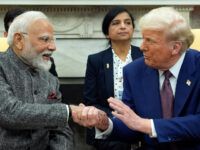
INDIA’S Bold Trade Deal Gamble: Will American Workers Pay the Price?
— India wants a new trade deal to cut tariffs on U.S. goods. The plan would lower the average tariff gap between Indian and American exports from 13 percent to just four percent. India is offering zero duties on some U.S. imports and “preferential access” for nearly 90 percent of American products, including planes, cars, medical gear, and animal feed.
In return, India wants better access for its own exports like jewelry, textiles, chemicals, and farm produce. It also hopes to get advanced U.S. technology in computer chips and medicine. Right now, India has a $45.7 billion trade surplus with America.
The Trump administration has called out this huge trade gap as unfair to American workers and businesses. Last month it threatened high tariffs on Indian goods but paused them for 90 days while talks continue.
U.S. officials want India to ease its tough rules on imported medical devices and chemicals that block American companies from selling there. Both countries are under pressure to reach a deal before time runs out — one that could finally tackle years of unfair trading practices against America’s interests.

INDIA’S Bold Trade Demand: Will Americans PAY the Price?
— India wants to cut tariffs on American products, slashing the gap with the U.S. from 13 percent down to just four percent. This plan would drop duties on things like planes, cars, and medical equipment to zero. Nearly 90 percent of American goods could get easier access into India.
But there’s a catch. In return, India wants its jewelry, textiles, chemicals, and farm goods to flow more freely into America. They’re also asking for more chances to get U.S. technology in areas like computer chips and artificial intelligence.
Right now, India enjoys a $45.7 billion trade surplus with the United States — a number President Trump has called unfair in the past. His administration put tough tariffs on Indian goods but paused them for 90 days last month. Now that deadline is coming up fast.
The U.S., for its part, wants India to loosen strict rules that hurt American companies selling medical devices and chemicals there. Both countries need each other — India wants investment while America fights for fairer deals — but who will come out ahead if this deal goes through?
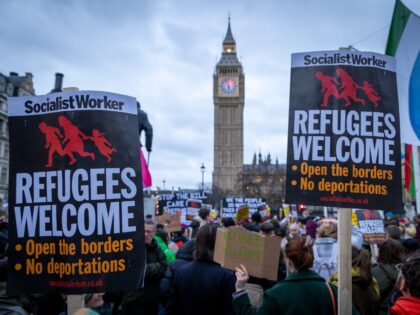
REFORM PARTY’S Stunning WIN Shakes UP England Elections
— Nigel Farage’s REFORM party pulled off a huge upset in England’s council elections. They won 677 out of 1,641 seats and took control of 10 councils. Reform also grabbed two mayoral victories and made gains in the national parliament during the Runcorn and Helsby by-election. Labour, fresh off a general election win, lost 187 seats to Reform, Liberal Democrats, Greens, and pro-Gaza independents.
Prime Minister Sir Keir Starmer admitted voters punished his party but promised Labour would “go further and faster on the change that people want.” Still, there is no clear plan for what this change will be as splits grow inside Labour.
Far-left MP Nadia Whittome slammed Labour for trying to look tough on immigration. She said their efforts to “out-Farage Farage” only helped boost Reform’s popularity.
Whittome admitted voters are fed up with housing shortages and strained social services caused by mass migration. She argued Labour should target the “ruling class,” not migrants. Former cabinet minister Louise Haigh agreed it was fair for people to be angry about billions spent on migrants while benefits for citizens get cut.
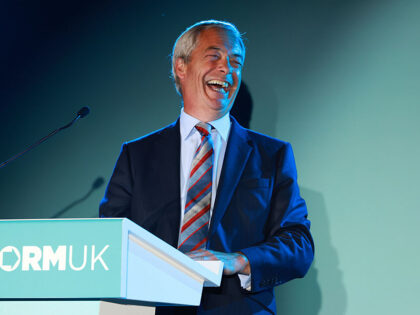
REFORM UK VICTORY Stuns England: Farage’s Bold Promise Ignites Hope for Change
— Nigel Farage celebrated as his REFORM UK party shocked the nation in England’s local elections. Reform won ten councils, two mayor seats, a parliamentary byelection, and 677 council positions. The BBC said if these results happened in a General Election, Reform could lead the next government.
Farage called this win a “historic landmark” and said the old two-party system is “finished.” He told supporters they would make history again by winning the next General Election. Farage described his party as “agents of change” who are here to stay.
Reform focused on issues like immigration and government waste. Farage warned council workers involved in climate or diversity programs to find new jobs, showing he wants less red tape and more common sense.
Many voters said they were tired of taxpayer money going to migrant housing. Reform’s message connected with people who feel ignored by both Labour and Conservatives.
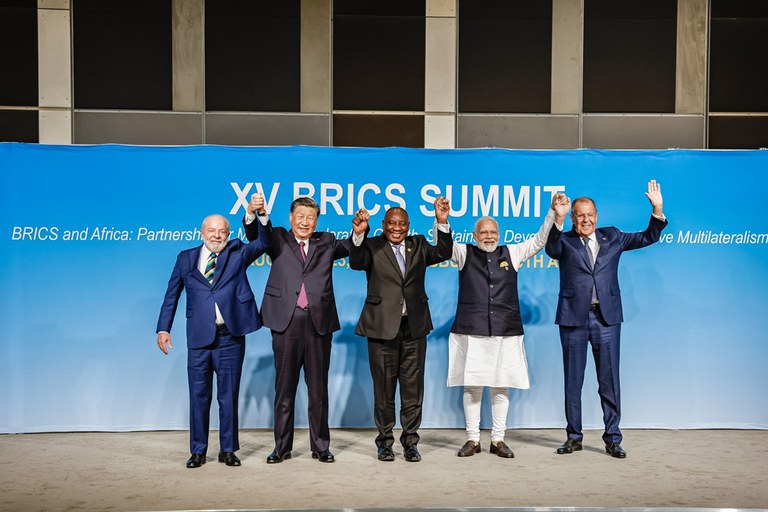
BRAZIL’S Bold Gamble: Global Power Play Ignites Trade WAR Fears
— Brazil is grabbing the world’s attention as it gets ready to host the BRICS summit in July 2025. President Lula da Silva is leading a busy schedule, with plans for a regional meeting in Honduras, an official visit to France, and support for peace talks between Russia and Ukraine during his trip to Portugal.
These moves come at a tense moment. President Trump has warned he may slap new tariffs on Russian oil if there’s no deal over Ukraine. Meanwhile, China is trying to pull Latin America closer through its CELAC forum, hoping to boost its influence in the region.
Brazil’s active diplomacy shows it wants a bigger role on the world stage. The country hopes to act as mediator between major powers like the US, Russia, and China while pushing for stronger ties in Latin America.
With trade wars looming and global tensions rising, Brazil’s bold approach could shape how these big issues play out — or backfire if things go wrong.
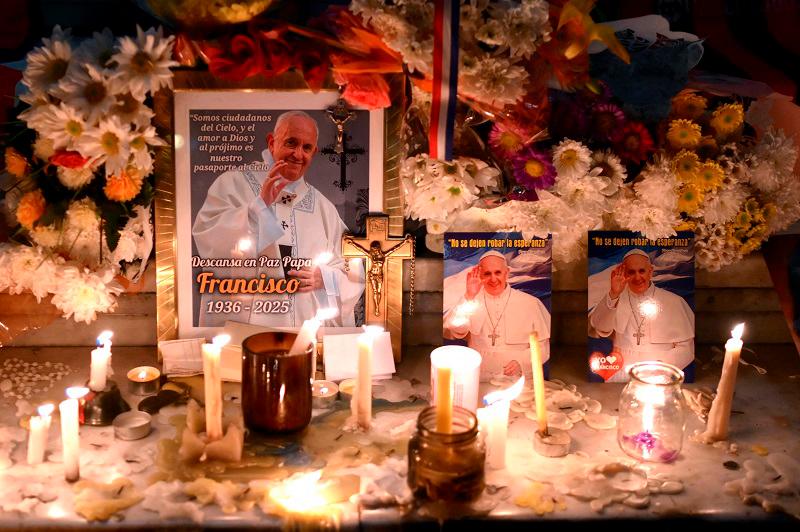
POPE FRANCIS Death Shock: World Stunned as Global News Stalls
— The world is standing still after the death of POPE FRANCIS. Business leaders worldwide have sent their condolences, but there are no major international events making headlines.
Most news outlets have shifted focus to U.S. stories, like the Arizona Department of Corrections investigation and Harvard’s lawsuit against the Trump administration. These are not global stories and offer little for those wanting international updates.
Outside of ongoing coverage about Pope Francis’s passing, there is almost no movement on the world stage. Anyone hoping for big news from abroad will have to wait until something new breaks.

TRUMP’S “Liberation DAY” Shocks Markets: Wall Street Reels as Tariffs Spark Global Showdown
— President Trump’s “Liberation Day” tariffs have rocked the markets. The Dow dropped more than 2,000 points on some days. The S&P 500 and Nasdaq both fell into bear market territory. These tariffs, reaching up to 125% for some countries, are the highest seen in a hundred years. China, the EU, and Japan are feeling the pain most. China hit back with its own tariffs on American goods. Japan’s finance minister warned of global trouble ahead. Still, US officials say they’re hopeful about future trade talks. Big companies are taking hits too. CarMax shares sank after weak earnings reports. Nvidia tumbled more than 20% from its high point this year. UnitedHealth lowered its profit forecast because Medicare costs keep rising. Experts think this wild ride will last until trade fights settle down. Some industries are holding up better than others under pressure. The Federal Reserve might cut rates three times this year if things get worse — some warn a financial crisis could happen if tariff chaos continues much longer.
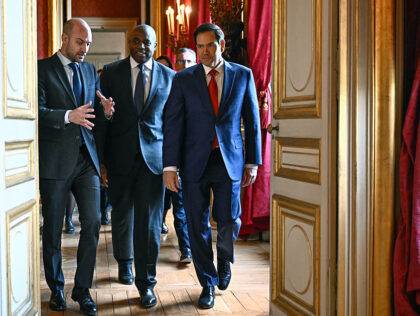
US PEACE TALKS Warning: Rubio’s Bold Move Could Change Ukraine War
— Secretary of State Marco Rubio warned Friday that the U.S. might walk away from Ukraine-Russia peace talks if both sides don’t show real progress soon. Speaking before leaving France, Rubio said Moscow and Kyiv aren’t taking talks seriously. “We’re not going to be flying all over the world and do meeting after meeting if no progress is being made,” he told reporters.
Rubio made it clear that America won’t keep joining pointless meetings just for show. He said the U.S. wants to help end the war in a fair and lasting way, but only if either side truly wants peace.
If Russia or Ukraine doesn’t show they’re ready to compromise soon, Rubio hinted President Trump could decide it’s time for America to step back from negotiations. Still, he left open the chance for future talks if things change.
Many conservatives agree with Rubio’s tough stance, saying America should not waste time or resources on endless discussions that go nowhere while our own country faces serious problems at home.

PUTIN’S Shocking Praise for Elon Musk Sparks Global Buzz
— Russian President Vladimir Putin surprised many by comparing Elon Musk to Soviet space legend Sergei Korolev. Speaking with university students, Putin said Musk “raves about Mars” and called him a rare figure who makes the impossible happen. He linked Musk’s bold dreams to Korolev’s historic achievements in space.
Putin admitted that reaching Mars seems far off today but believes ideas like Musk’s can come true over time. He reminded listeners that Korolev, once doubted, led the Soviets to major victories in space exploration after years of struggle under Stalin.
Sergei Korolev was kept secret during his life but became a hero after his death for launching the first satellite and human into orbit. Putin used this story to show how visionaries can shape history, even if people doubt them at first.
Kirill Dmitriev, head of Russia’s wealth fund, added that missions to Mars are “getting more real.” Dmitriev recently visited Washington D.C., meeting with Trump officials after U.S. sanctions were lifted for his trip — a sign of possible new talks between Russia and America.;

ECUADOR Election SHOCKER: Noboa’s Triumph Sparks Controversy
— Ecuadorians have reelected President Daniel Noboa, a conservative millionaire, by a wide margin. Noboa secured 55.8% of the vote with over 92% counted, defeating leftist lawyer Luisa González. Despite the clear results, González plans to seek a recount, alleging “grotesque” electoral fraud.
The National Electoral Council’s president declared an “irreversible trend” favoring Noboa. His victory grants him four years to deliver on promises made during his surprising win in the previous snap election. Noboa aims to continue his tough crimefighting strategies that resonate with many voters but challenge legal norms.
In his victory speech, Noboa criticized González’s fraud claims and emphasized Ecuadorians’ decision at the polls. “Ecuador is changing,” he stated confidently, promising better futures for children under his leadership. He urged unity and focus on work ahead as Ecuadorians have already spoken through their votes.
TRUMP’S 104% China Tarifs Stun Global Markets
— The UK and EU stock markets are feeling the pressure as President Trump’s tariffs, including a steep 104% on Chinese goods, take effect. EU trade commissioner Maroš Šef?ovi? announced that the EU will not retaliate against these U.S. tariffs, citing limited options for response. European Commission President Ursula von der Leyen suggested a “zero-for-zero” trade deal to the White House amid talks of an EU-US free trade zone by Trump adviser Elon Musk.
Concerns about the economic impact of these tariffs are growing in Europe. Patrick Martin, head of France’s Medef business lobby, warned that U.S. tariffs could harm France’s economic growth and possibly lead to a recession. Meanwhile, Wall Street has also taken a hit as hopes for tariff delays fade, with the S&P 500 dropping 1.6%.
Elon Musk has publicly criticized Trump adviser Peter Navarro over comments related to Tesla and the broader effects of U.S. tariffs on American businesses. In other business news unrelated to tariffs, a Chinese billionaire is looking to purchase multiple Hudson’s Bay locations in Canada due to an emotional connection with the brand and aims to prevent its financial collapse. Binding bids for these assets are expected by April 30th with lease offers due by May 1st.;
TRUMP’S Trade WAR: A Global Financial Nightmare?
— The Bank of England warns of a looming global financial crisis due to Donald Trump’s trade war. The Financial Policy Committee (FPC) pointed out risks from new global tariffs introduced on April 9. These tariffs have increased uncertainty in world markets, possibly leading to debt spirals for governments.
The UK, with its open economy and large financial sector, is especially vulnerable to shocks from international trade conflicts. Rachel Reeves, the Chancellor, confirmed ongoing talks with the Bank’s Governor to watch market developments amid these tensions.
Trump’s threats of more tariffs on China could escalate the conflict and harm international cooperation. Such actions may worsen financial conditions worldwide, according to the FPC’s warning note.
Despite these worries, analysts believe that the well-capitalized UK banking system might offer some protection against economic turmoil. However, watching trade war developments remains crucial as they could greatly impact both local and global markets.

US TRADE Policies Cause GLOBAL Economic Jitters
— Recent U.S. tariffs have left Canadian small businesses facing economic challenges, leading to job cuts and price hikes. The Canadian Federation of Independent Business reports nine percent of owners have issued layoff notices due to these tariffs. Businesses are raising prices by an average of 3.7 percent this month as they struggle with rising costs and decreased consumer spending.
In Alberta, business leaders feel cautiously optimistic after avoiding new U.S.-imposed tariffs that threatened the energy sector. Adam Legge from the Business Council of Alberta feels relieved but remains wary about future trade developments under current policies.
President Trump’s tariff strategy aims to equalize import taxes with those imposed by other nations, sparking debate over its economic impact on sectors like agriculture and manufacturing. Meanwhile, Japan’s Prime Minister Shigeru Ishiba expressed disappointment over Japan’s exclusion from tariff exemptions and plans support for affected industries domestically.
These developments highlight growing concerns about global economic instability driven by U.S. trade policies, particularly affecting small businesses worldwide as they navigate uncertain financial landscapes.
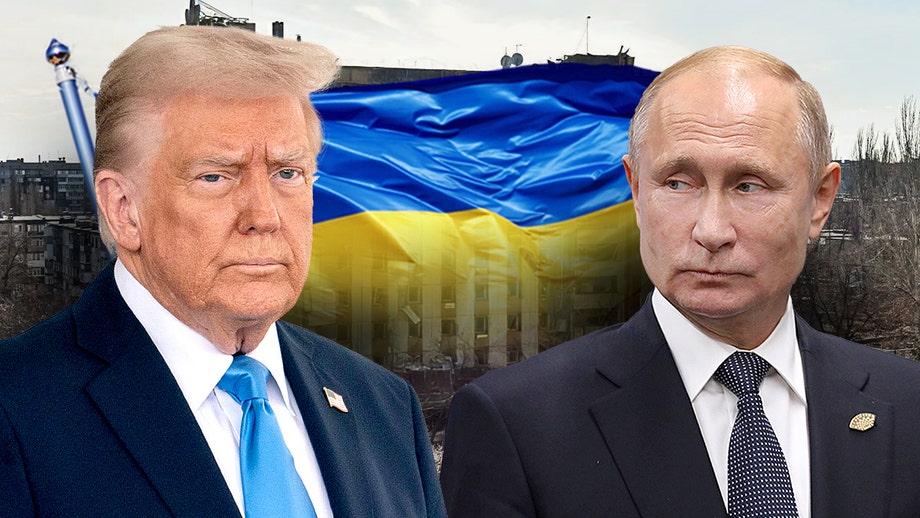
RUSSIA’S CEASEFIRE Bluff: Will They Really Stop the Conflict?
— Secretary of State Marco Rubio announced that RUSSIA’s commitment to a ceasefire in Ukraine will soon be tested. Speaking at NATO headquarters, Rubio stressed the U.S.’s desire to end the conflict and warned against potential delay tactics by Moscow.
Russia’s rejection of a 30-day ceasefire proposed by Ukraine and its conditions for a Black Sea truce have raised doubts about its intentions. The Trump administration remains cautious, with President Trump unwilling to engage in endless talks without concrete actions from Russia.
Rubio avoided detailing Russia’s conditions for peace but pointed out discrepancies between official reports and actual discussions with foreign leaders. This was clear after President Trump’s call with Russian President Putin, where differing accounts emerged about commitments on Black Sea force usage.
TRUMP’S Bold Trade Move Shakes Global Markets
— Former President Donald Trump has signed orders for “reciprocal tariffs” aimed at countries with unfair trade practices. This plan is to protect American jobs by taxing goods from nations harming the U.S. economy. It’s a major shift in U.S. trade policy, affecting many imports.
Trump calls these tariffs vital to balance foreign advantages over American manufacturers, showing his focus on American workers and industries. This aligns with his re-election strategy, emphasizing economic nationalism as a key point. Supporters see it as reclaiming economic control, while critics warn of possible retaliatory tariffs and tense international relations.
Economists are split on the effects, worried about complicating U.S. trade further and raising consumer costs if other countries retaliate. The announcement has sparked mixed reactions across political lines, showing different views on its economic impact potential.
As Trump boosts his campaign efforts, this sweeping tariff policy will be watched closely by both domestic and international stakeholders for its effects on global trade dynamics and the future direction of the U.S economy’s path forward.
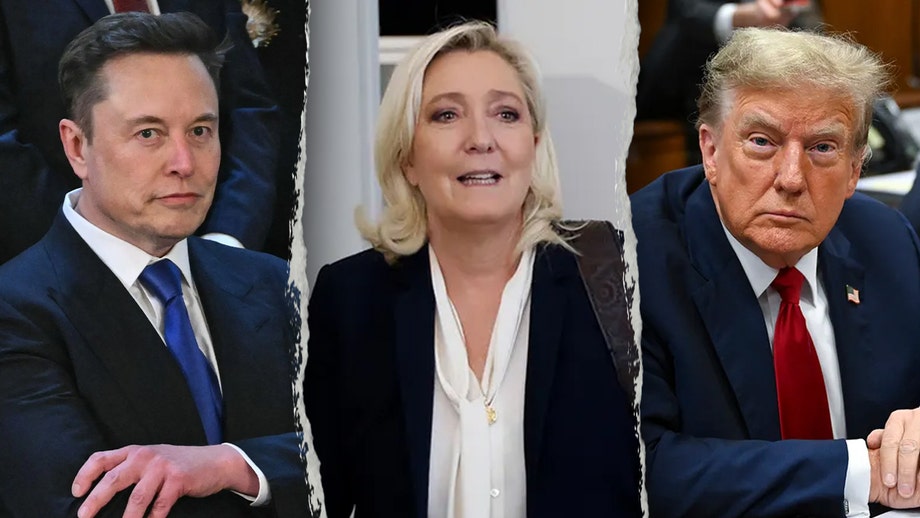
LE PEN’S Conviction: Conservatives Outraged by Global Legal Attacks
— Marine Le Pen, a well-known right-wing figure, was convicted of embezzlement on Monday. This sparked criticism from conservative voices. Elon Musk compared her legal issues to those of former President Donald Trump. He accused the left of using the legal system to target political opponents worldwide.
Le Pen’s conviction prevents her from running for office for five years, similar to other right-wing leaders facing legal challenges globally. Israeli Prime Minister Benjamin Netanyahu and former Brazilian President Jair Bolsonaro are also dealing with ongoing court battles. These cases show a trend where conservative politicians face intense judicial scrutiny.
President Trump voiced his concern over Le Pen’s sentence, noting its similarity to his own legal troubles in the U.S. He stressed how these convictions affect leading candidates like Le Pen and drew parallels with his experiences in America.
The targeting of right-leaning politicians through legal means remains controversial among conservatives who see it as an abuse of power by their opponents. Many believe these actions aim to undermine democratic processes when electoral wins seem out of reach for the left.

TRUMP’S Bold Stance on Auto Price Hikes and Global Diplomacy Revealed
— President Donald Trump recently declared he “couldn’t care less” if foreign automakers hike prices due to his auto tariffs. This bold move shows his commitment to putting American interests first, despite foreign economic pressures. Trump also confirmed he won’t fire anyone involved in the Signal group chat controversy.
Internationally, Iran has rejected direct nuclear talks with Trump but is open to indirect discussions. The President has warned of military action if Tehran doesn’t agree to a nuclear deal with Washington, highlighting his strong approach to national security and diplomacy.
Trump criticized Russian President Vladimir Putin and warned of secondary tariffs on nations buying oil from Russia amid Ukraine tensions. These potential tariffs are part of Trump’s broader strategy as he nears an April 2 deadline for major tariff actions against adversaries while staying open to negotiation deals.
Domestically, Republicans face challenges as Democrats aim for gains in Florida’s Sixth District despite Trump’s past success there. Meanwhile, Trump withdrew Congresswoman Elise Stefanik’s nomination for U.N. ambassador amidst a slim GOP House majority and upcoming special elections, underscoring internal party dynamics and strategic shifts before future political battles.

PALESTINIANS RISE UP: Demanding Change in Gaza Strip
— Thousands of Palestinians marched through northern Gaza, voicing rare criticism against HAMAS. In Beit Lahiya and Shijaiyah, they called for an end to the war with Israel. Demonstrators chanted for the fall of Hamas, marking a significant shift in public sentiment.
The protests highlight growing frustration with 17 months of conflict that has devastated Gaza. Despite Hamas’s history of violently suppressing dissent, these demonstrations show increasing boldness among Palestinians. Protesters burned tires and chanted for change amid the wreckage left by continuous fighting.
Hamas’s rule over Gaza faces unprecedented challenges as citizens demand accountability and peace. This unrest signals potential shifts in power dynamics within the region as people grow weary of conflict’s toll on daily life. The international community watches closely as these events unfold, considering their implications for future peace efforts in the Middle East.

ISRAELI STRIKES in Gaza: Tragic Death Toll Sparks Global Outrage
— The health ministry in Gaza reports a shocking death toll of 50,000 as Israel launches new military strikes. The Israeli government had earlier warned of “complete destruction and devastation” if Hamas did not release hostages.
Dr. Feroze Sidhwa, an American doctor in Gaza, saw an explosion hit the front of his hospital building. This attack reportedly aimed at Ismail Barhoum, a political figure within Hamas. The strike has worsened violence and increased casualties in the area.
Israel’s actions have heightened the already tense situation in Gaza. The world watches closely as tensions rise between Israel and Hamas amid ongoing conflict and humanitarian concerns.
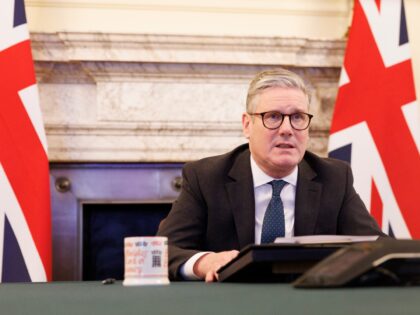
GLOBAL SUMMIT on Ukraine: Defiant Stand Against Russia
— The upcoming virtual summit, known as the “coalition of the willing,” will focus on military and financial aid for Ukraine. Leaders from around 25 countries, including European partners, Australia, Canada, New Zealand, and Ukraine itself, will participate. NATO and EU officials are also expected to join these crucial discussions.
The meeting follows a U.S. proposal for a 30-day ceasefire in Ukraine that President Zelenskyy supports. Russian President Putin has shown conditional support but wants details clarified before agreeing. U.S. Secretary of State Marco Rubio expressed “cautious optimism” about Putin’s potential backing after meetings with envoy Steve Witkoff.
Notably absent is a representative from the United States due to a shift under President Trump’s administration compared to Joe Biden’s policies. Trump’s recent clash with Zelenskyy highlights this change in strategy towards resolving the Russia-Ukraine conflict through different means than his predecessor used.
UK leader Starmer remains skeptical about Russia’s intentions and stresses that concrete commitments are necessary as Putin engages in what he calls “pointless games” with Trump’s peace plan proposals. Starmer criticized the Kremlin’s disregard for Trump’s ceasefire proposal as evidence of Russia’s lack of seriousness about achieving peace in Ukraine.

GLOBAL News LULL: Why the World is Quiet Right Now
— Currently, there are no significant breaking news stories outside the United States and United Kingdom. This lack of major events highlights a temporary lull in global headlines.
Readers looking for updates from other regions might need to check back later or explore different topics for the latest developments.
Stay informed by keeping an eye on reliable sources, as situations can change rapidly across the globe.
TRUMP FIGHTS Back: Supreme Court Birthright Ruling Could Change Everything
— The Trump administration is asking the Supreme Court to allow parts of its birthright citizenship restrictions. This comes after legal challenges stopped President Trump’s executive order. Judges in Maryland, Massachusetts, and Washington have put a nationwide halt on the order.
The order seeks to deny citizenship to children born after February 19 if their parents are in the U.S. illegally. It also stops U.S. agencies from recognizing these children’s citizenship through documents. Three federal appeals courts have blocked this policy so far.
About two dozen states and various groups argue that the order breaks the 14th Amendment, which promises citizenship to anyone born in America. The Justice Department argues that individual judges shouldn’t make nationwide rulings and wants limited enforcement against only those who sued.;

DEMOCRATS’ SHUTDOWN Gamble: Will They Risk It All?
— Senate Democratic Minority Leader Chuck Schumer warns that the 60 votes needed to pass the funding bill aren’t secured. He suggests a one-month extension with current spending levels for bipartisan talks. This move aims to strengthen Democrats’ position against President Trump but risks making them seem ineffective.
The threat of a government shutdown, which would furlough federal workers and disrupt critical operations, adds pressure on Democrats. Schumer’s strategy could either unify his party or gamble that Republicans will face backlash if a shutdown occurs.
Democrats refuse to back what they call a partisan Republican funding bill, intensifying Senate tensions amid ongoing tariff discussions under Trump’s administration. With only 52 Republican votes, failing to reach 60 could lead to a significant political showdown as both parties brace for potential fallout from their strategies.

UKRAINE Cease-Fire: Russia’s RESPONSE Could Change Everything
— Russia is waiting for details from Washington on U.S.-Ukrainian cease-fire talks held in Saudi Arabia. Kremlin spokesperson Dmitry Peskov said they need “detailed information” before commenting on the 30-day cease-fire proposal that Ukraine has accepted. Moscow has always opposed temporary measures, wanting a permanent solution to the conflict.
Secretary of State Marco Rubio led the American team in these discussions and confirmed Ukraine’s willingness for a 30-day cease-fire. Rubio assured that the U.S. will inform Russia about the proposal, aiming for immediate talks to end the war permanently.
U.S. envoy Steve Witkoff plans to visit Russia later this week and may meet President Vladimir Putin. “We’re going to bring it to them directly,” Rubio emphasized, showing that Ukraine is ready for negotiations if Russia agrees.
Rubio noted that if Russia accepts, it would be substantial progress toward peace. A refusal would reveal Moscow’s true intentions regarding Ukraine’s ongoing conflict. The outcome could greatly impact future diplomatic relations and regional stability.
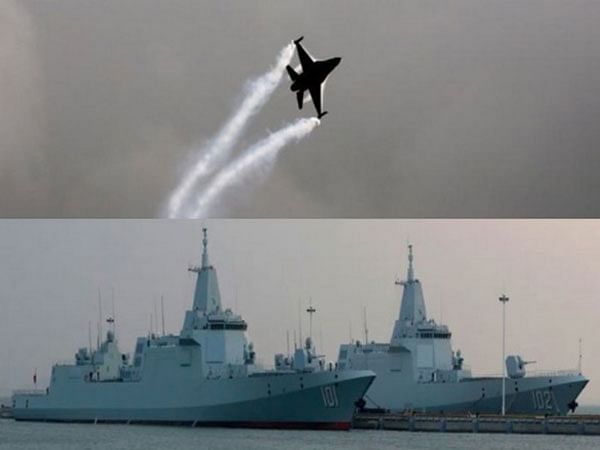
CHINA’S Military Moves Near Taiwan Stir Global Concern
— Taiwan has spotted 11 Chinese military aircraft and 9 vessels close to its territory. This marks a major increase in China’s military activity around Taiwan.
China is also boosting its cognitive warfare against Taiwan by setting up a misinformation unit within its United Front Work Department. This move raises fears of rising tensions in the region.
In other news, AIM Vaccine’s improved diploid rabies vaccine has been approved for clinical trials. The new vaccine promises better results than current options, highlighting AIM’s innovative power on the global stage.

NEW RABIES Vaccine: A Game-Changer In Global Health
— AIM Vaccine has announced a major breakthrough with its new rabies vaccine approved for clinical trials. The company claims this vaccine is much more effective than current options.
This progress highlights AIM Vaccine’s innovative abilities and strategic global approach. Since February, the company has made several advancements, positioning itself as a leader in vaccine innovation.
The approval is a crucial step in fighting rabies more effectively worldwide. With clinical trials underway, AIM Vaccine aims to transform how rabies is prevented and treated globally.

SOUTH CHINA SEA Showdown: Rising Fears and Global Stakes
— Armed forces from several nations are boosting their presence in the South China Sea, raising tensions over territorial claims. Chinese naval vessels have confronted American warships in disputed waters, leading to close encounters. The United States reaffirms its commitment to freedom of navigation, while China insists the area is under its sovereignty.
Regional allies like Japan and Australia are worried about the rising tension and call for diplomatic solutions. Chinese vessels have intercepted U.S. Navy ships during routine operations, prompting condemnation from the U.S. State Department. In response, China defends its actions as protecting sovereignty and warns against foreign provocations.
Both sides prepare for possible military drills in the region, raising fears of accidental conflict. Analysts warn that ongoing military posturing could trigger a major geopolitical crisis affecting trade routes and international relations across Asia-Pacific.
The situation demands careful handling to avoid unintended escalation and maintain regional stability as tensions continue to simmer in these contested waters.

METAL STOCKS Soar: Investors Cheer Global Demand Boom
— METAL stocks like Tata Steel, Hindalco, and Vedanta are seeing a rise of up to 4% in share prices. This jump is due to favorable global market conditions and increased demand for metals. Investors feel hopeful about the sector’s future.
Tata Steel shares have climbed about 4%, thanks to positive quarterly results and higher production forecasts. Hindalco gains from rising aluminum prices and a brighter outlook as global demand increases.
Vedanta’s shares are also climbing because of strong performance and smart strategies to boost production efficiency. These companies’ gains show broader economic conditions that favor raw material demand.
Market experts point to international trade dynamics, better supply chains, and more infrastructure spending worldwide for this bullish trend. These factors boost investor confidence in METAL stocks amid growing global need for raw materials.
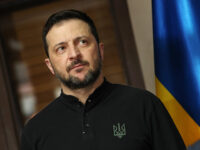
ZELENSKY’S Choice: Will He Seize the Chance for Peace?
— Golden praised Ukraine’s courage against Russian aggression but cautioned that a prolonged conflict could worsen the country’s situation. He urged President Zelensky to strengthen his negotiating position if peace is truly possible, as Zelensky hinted on X. Golden suggested that calling and winning a new election would show Zelensky’s mandate to negotiate for Ukraine.
Zelensky recently stated on X that Ukraine is ready to negotiate and committed to peace, expressing a desire to end the war swiftly. He emphasized the importance of working under strong leadership, specifically mentioning President Donald Trump, to achieve lasting peace.
Zelensky expressed regret over a recent meeting in Washington but stressed the need for constructive future cooperation. His call for unity and decisive action highlights his commitment to finding a peaceful resolution while ensuring Ukraine’s sovereignty remains intact.

TRUMP’S Trade WAR: Global Markets in Chaos
— President Donald TRUMP’s recent tariffs have sparked swift retaliation from Mexico, Canada, and China. These actions have thrown financial markets into chaos, raising fears of inflation and uncertainty for businesses.
Imports from Canada and Mexico now face a 25% tariff, with Canadian energy products specifically taxed at 10%. This move has heightened global trade tensions significantly.
China responded quickly to the U.S. tariffs, escalating an already heated international dispute. A Chinese spokesperson warned that these measures could harm the U.S. economy by disrupting beneficial trade relations.
Analysts worry about potential backlash against U.S. exports as these trade disputes unfold. The situation is seen as a risky maneuver that might reshape global trade dynamics and impact both consumers and businesses in the long run.

GENETIC ENGINEERING Breakthrough: Could It Change Conservation?
— Colossal Biosciences is pushing the limits of GENETIC ENGINEERING by trying to recreate traits of extinct species like the woolly mammoth. The company aims to genetically modify living animals with features similar to these ancient creatures. CEO Ben Lamm highlights their focus on studying ancient DNA to reach this goal.
The company’s latest success involves editing genes in mouse embryos, resulting in a “Colossal woolly mouse” with long, thick hair. This marks a big step in their bold plan announced in 2021 to bring back extinct species such as the woolly mammoth and dodo bird. However, these results are not yet peer-reviewed or published in scientific journals.
While Colossal’s work is groundbreaking, it has sparked debate among scientists about its conservation value. Christopher Preston from the University of Montana argues that these projects don’t truly bring back extinct species but just mimic certain traits. The scientific community remains split on whether this approach helps conservation or is merely a novel technological feat.

UN Chief’s SHOCKING Plea to END Global ‘Warmongers’
— On the third anniversary of Russia’s invasion of Ukraine, UN Secretary-General António Guterres criticized leaders he called “world’s warmongers.” He condemned their disregard for human rights and the suffering caused by their actions. Guterres urged an end to conflicts that worsen crises and deepen global misery.
During a press briefing, Guterres stressed the urgent need for international cooperation to address ongoing crises and restore peace. He highlighted the rise in casualties and displacement due to military conflicts. The Secretary-General emphasized leaders’ moral duty to prioritize peace over warfare.
Guterres called on member states to unite in finding diplomatic solutions to ongoing conflicts. He suggested that addressing crises like Ukraine could lead to broader global stability. His remarks highlight the dire implications of geopolitical conflicts that demand collective action for peace and security.
)
INDIAN Woman’s EXECUTION in UAE Ignites Global Outrage
— A 33-year-old Indian woman, Shahzadi Khan, was executed in the UAE on February 15, 2025. The Indian Ministry of External Affairs confirmed her execution after she was convicted for the death of a four-month-old child under her care in Abu Dhabi. Her family insists she was wrongfully implicated.
The tragic incident happened after the child received routine vaccinations in December 2022. Despite numerous appeals from her father, Shabbir Khan, including pleas to India’s President and Prime Minister, efforts to save her life failed. The Indian Embassy provided legal representation during her trial.
The Delhi High Court called the situation “unfortunate” but confirmed Shahzadi’s execution before dismissing a plea by her father seeking information about her legal status and well-being. This case has highlighted issues surrounding legal processes for Indians abroad.
Shahzadi Khan’s cremation is set for March 5, 2025, in Abu Dhabi. This case raises concerns about international legal representation and underscores challenges faced by Indian nationals working overseas under foreign judicial systems.

Video
WHO PANDEMIC Deal Sparks Global Fears: What’s Really at Stake?
— The World Health Organization just adopted its first-ever global Pandemic Agreement. Leaders from 194 countries met in Geneva to sign off on the deal after three years of talks, most of it behind closed doors. WHO chief Dr. Tedros called for “global solidarity,” but many worry this is a push for more control from unelected health officials.
The agreement sets up a new Pathogen Access and Benefit Sharing system, or PABS, to track and share information about outbreaks faster. Supporters claim it will help stop future pandemics before they start. Critics warn it could give the WHO too much power over national health decisions.
Other topics on the table include funding for the WHO, fighting drug-resistant bacteria, polio eradication efforts, climate change impacts on health, and how much money will be spent through 2027. India was praised for wiping out trachoma as a public health threat.
Dr. Teodoro Javier Herbosa from the Philippines was chosen as Assembly President this year. The event is being streamed by Reuters as delegates debate rules that could change how countries handle future emergencies — whether they want to or not.
